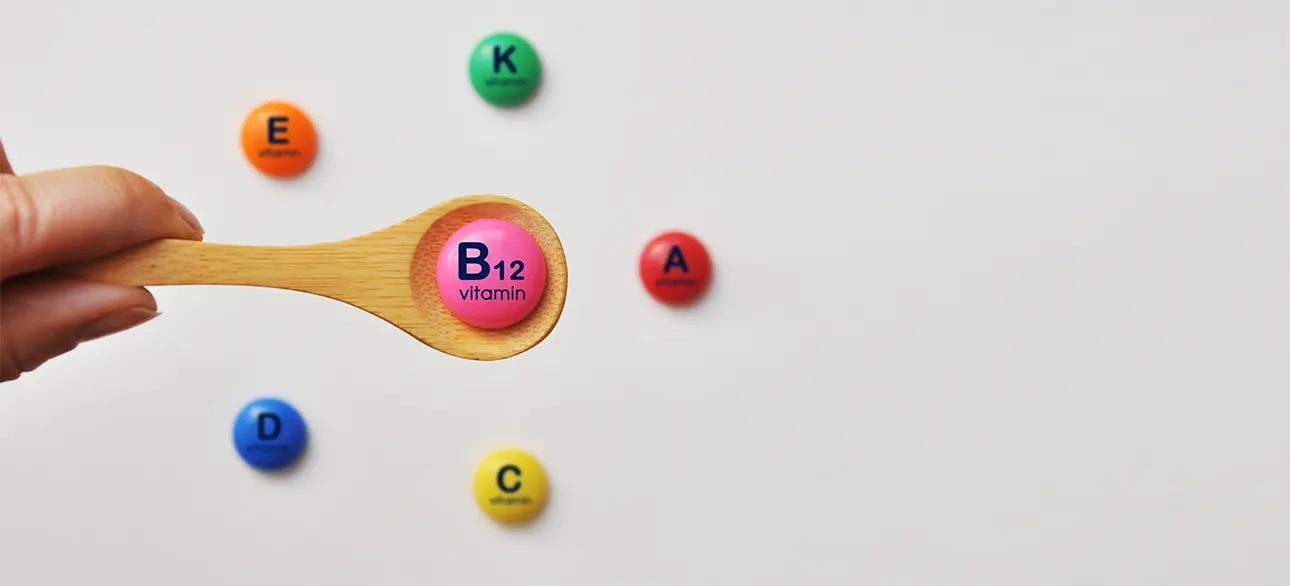What Helps Vitamin D Absorption?
Maximize your vitamin D levels by pairing supplements with healthy fats, supporting nutrients like magnesium and K2, and understanding factors that affect absorption.
Advertiser Disclosure: We independently select all the products. If you click through links we provide, we may earn a commission.

Key Takeaways
- Vitamin D absorption depends on dietary fats, as the vitamin is fat-soluble and requires fats to be absorbed effectively.
- Consuming vitamin D with fat-rich foods such as avocados, fatty fish, and full-fat dairy enhances its uptake.
- Magnesium and Vitamin K2 are essential for optimal vitamin D function, as they help activate the vitamin in the body.
- Health conditions and medications can affect vitamin D absorption, making it important to pair supplements with proper meal timing and nutrient support.
Introduction
Your body relies on vitamin D for many jobs beyond just building strong bones. This nutrient helps your system take in and keep calcium plus phosphorus effectively. These two minerals create the foundation for healthy bones and teeth throughout your life.
Vitamin D also powers your immune system while keeping your muscles working at peak performance. This sunshine nutrient might shield you from serious long term health problems too. Your gut cells get stronger protection when vitamin D levels stay where they should be.
People often try to boost their vitamin D by taking more pills or eating certain foods. They miss the key point about how well their body actually uses what they consume. Poor uptake can leave you lacking this vital nutrient even when you take plenty of it. The right balance can unlock all the vitamin benefits your body needs. The foods you eat with vitamin D and other nutrients in your meals change everything.
How Does Your Body Absorb Vitamin D?
Vitamin D belongs to the fat loving group of nutrients that need dietary fats for proper uptake. Your intestines cannot absorb this vitamin without fat present during the digestion process.
Water loving vitamins dissolve easily but vitamin D must travel with fats through your bloodstream instead.
The two main types of vitamin D work quite differently inside your body right now. Vitamin D2 comes from ergocalciferol while vitamin D3 forms from cholecalciferol in your system.
Your skin makes D3 naturally when sunlight hits it during outdoor time each day. Animal based foods also provide this same D3 form that your body prefers to use.
Scientific evidence shows D3 raises your blood levels much better than D2 can do. Plant sources give you D2 but this form works less well for keeping your levels steady.
“Vitamin D is essential for bone health and immune function, but its effectiveness depends largely on proper absorption. Pairing vitamin D supplements with healthy fats and ensuring adequate magnesium intake significantly enhances the body’s ability to utilize this vital nutrient.”
What Factors Influence Vitamin D Absorption?
Taking Vitamin D with dietary fat for better uptake
Evidence clearly shows that eating fat with vitamin D greatly improves how much you absorb.
One key clinical trial found that taking D3 pills with fatty meals boosted uptake by thirty two percent. This happened when compared to taking the same pills with meals containing no fat at all.This major difference proves why meal timing with your dietary supplements makes such a big impact.
Examples of foods that improve absorption
Eating the right foods can boost your vitamin D uptake. Smart food choices make your body use vitamin D better. Fat-rich foods work best for this task.
 Examples of foods that improve absorption
Examples of foods that improve absorption
Here are top food options that help your body absorb vitamin D:
- Avocados Nuts and seeds (especially almonds and flaxseeds)
- Olive oil and other plant-based oils
- Fatty fish like salmon (which also naturally contains vitamin D)
- Eggs (particularly the yolk)
- Full-fat yogurt or cheese
Best time to get Vitamin D
Getting vitamin D from sun requires smart timing for best results. Your skin makes vitamin D when UVB rays hit it directly. These rays work best from 10 a.m. to 3 p.m. each day.
Most people need just 15-30 minutes of direct sun exposure twice weekly. Focus sun time on your face, arms, and legs for good results. This simple routine helps most people keep healthy vitamin D levels.
Key Nutrients That Support Absorption
Role of magnesium and Vitamin K2 in Vitamin D metabolism
Vitamin D needs helper nutrients to work at its best level. Your body cannot use vitamin D well without these key partners. Magnesium acts as a vital helper for vitamin D to function.
All enzymes that process vitamin D need magnesium to work right. Your liver and kidneys use these enzymes to make vitamin D active. Without enough magnesium in your body, vitamin D stays inactive and useless. This means taking vitamin D alone may not give you benefits. It's important to take vitamin D together with magnesium and Vitamin K2 for optimal absorption and effectiveness in your body.
Lifestyle and Health Factors
Your digestive system health greatly affects how well you absorb vitamin D. The good bacteria in your gut help process all nutrients properly. Scientists have found links between healthy gut bacteria and higher vitamin D levels.
Conditions and medications that may reduce absorption
Some health issues and drugs can block vitamin D absorption in your body. These problems make it harder to get enough vitamin D benefits.
Health conditions that reduce vitamin D uptake include:
- Gastrointestinal disorders like Crohn's disease, celiac disease, and inflammatory bowel disease
- Liver or kidney conditions that impair vitamin D activation
Common medications that interfere with vitamin D include:
- Atorvastatin (Lipitor) for cholesterol management
- Rifampin for tuberculosis treatment
- Mineral oil, which can prevent absorption
- Orlistat (Alli), a weight loss medication that reduces fat absorption
Tips for Optimizing Supplement Absorption
Taking supplements with meals containing fat
Fat-rich meals boost vitamin D uptake when you consume your daily dose. You should pair your vitamin D with your biggest daily meal for best results. This meal should include healthy fats to help your body process the supplement well.
Science backs this method as a proven way to increase nutrient uptake rates. Most people find dinner works best since it often contains more fats.
Choosing the right form of Vitamin D
Vitamin D3 works better than D2 for raising your blood nutrient levels long-term.
- You should pick D3 supplements over D2 when shopping for your health needs.
- Quality control matters when you select any supplement for your daily routine.
- Look for brands that third-party groups have tested and approved for safety.
- USP marks show that supplements meet strict standards for purity and content.
Conclusion
Better vitamin D uptake needs several key steps working together for you. You must eat it with fat-rich foods to help your body process it. Your body also needs other nutrients like magnesium and vitamin K2 to work. Some drugs can block how well your body takes in this vital nutrient. Choose D3 forms of supplements for the best results in your health plan. It's often considered the best vitamin for women to support bone health and overall well-being.
Vitamin D works best when it joins other healthy habits in your life. Your body needs good food, regular exercise, and enough sleep to thrive daily. Stress control also helps your system use nutrients the right way for health. A diet rich in vital nutrients supports how vitamin D helps your body. Exercise helps your bones use this nutrient to stay strong over time. Good sleep lets your body repair itself and process nutrients you consume.
FAQs
References
Flawless Bloom has strict sourcing policies and relies on primary sources such as medical organizations, academic institutions, governmental agencies, and peer-reviewed scientific journals. Read more about how we ensure our content is accurate, thorough, and unbiased by reading our editorial process.
- Effectiveness of vitamin D2 compared with vitamin D3 replacement therapy in a primary healthcare setting: a retrospective cohort study - https://pmc.ncbi.nlm.nih.gov/articles/PMC9372493/
- Dietary fat increases vitamin D-3 absorption - https://pubmed.ncbi.nlm.nih.gov/25441954/


























